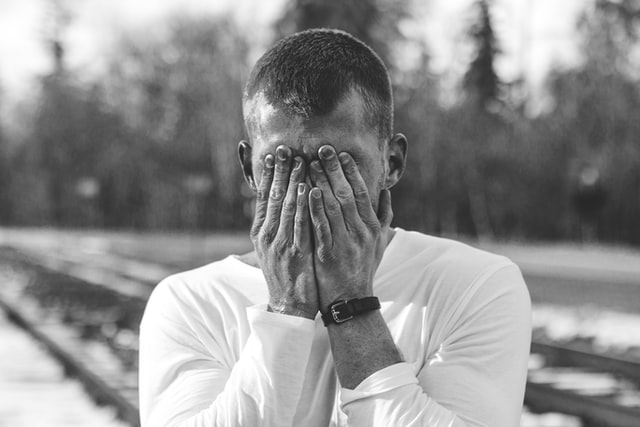Puberty is when the body of a child starts to grow and evolve as an adult. There are some stages of puberty, and boy and girl puberty signs are different. Girls are developing breasts and beginning their periods. Boys grow a deeper voice, and their facial hair starts to appear. The average age for girls to begin puberty is 11, while the average age for boys is 12. But it’s different for everybody, so don’t worry if your child hits puberty before or after their friends.
It is quite common for puberty to begin at any point between the ages of 8 and 14. The process can take up to 4 years to complete. Children who begin puberty either very early (before 8 years of age) or very late (after 14 years of age) should see a doctor just to make sure they are in good health.
Girl Puberty Signs

First signs of puberty in girls
The first symptom of puberty in girls is when their breasts begin to grow. It is common for breast buds to be very tender often, or for one breast to begin to develop several months before the other. Pubic hair is also beginning to grow, and some girls may have more hair on their legs and arms.
Later signs of puberty in girls
Within a year or two of puberty starting, and for the next few years:
- Girl’s breasts begin to develop and become fuller.
- Around 2 years after the beginning of puberty, girls typically have their first period.
- Pubic hair is getting rougher and curlier.
- Underarm hair is beginning to grow – some girls already have hair in other parts of their body, such as their upper lips, and this is totally natural.
- Girls start sweating more
- Girls also get acne—a skin disease that tends to be various types of spots, including whiteheads, blackheads, and pussy-filled spots called pustules.
- Women with a white vaginal discharge
- Girls are experiencing a growth spurt – from the time their cycles begin, girls grow 5 to 7.5cm (2 to 3 inches) annually over the next year or two, and then achieve adult height.
- Most girls gain weight (which is normal) as their body shape changes—girls grow more body fat around their upper arms, thighs, and upper backs; their hips become rounder and their waist narrower.
After about 4 years of puberty in girls
- Breasts are becoming adult-like
- The pubic hair extended to the inner thigh.
- Genitals should be completely established now
- Girls stop rising higher
Boy Puberty Signs

First signs of puberty in boys
- The first symptom of puberty in boys is typically when their testicles get bigger and the scrotum starts to get thin and red.
- The pubic hair also begins to appear at the base of the penis.
Later signs of puberty in boys
Within a year or two of puberty, and for the next few years:
- Penis and testicles are rising, and the scrotum is gradually getting darker (read more about penis health)
- The pubic hair is getting thicker and curlier.
- Underarm hair is beginning to grow.
- Boys start sweating more
- Breasts may swell slightly temporarily – this is natural and not the same as “man-boobs”
- Boys may have “wet dreams” (involuntary ejaculations of semen as they sleep)
- Their voice “breaks” and gets deeper all the time – for a while, a boy might find his voice going very deep one minute and very high the next.
- Boys often develop acne—a skin disease that appears to be various types of spots, including whiteheads, blackheads, and pussy-filled spots called pustules.
- The boys go through the growth spurt and grow taller by an average of 7 to 8cms, or around 3 inches a year, and more muscular.
After about 4 years of puberty in boys
- Genitals look like an adult and pubic hair has extended to the inner thighs.
- Facial hair is beginning to grow and boys will start shaving.
- Boys get older at a slower pace and stop rising fully at about 16 years of age (but may continue to get more muscular)
- Many boys would have reached full adult maturity by 18 years of age.
Mood changes in puberty
Puberty may be a tough time for girls. They are dealing with changes in their bodies, and probably acne or body scent, at a time when they feel self-conscious. Puberty can also be an exciting time, as children learn new feelings and emotions. But the “emotional rollercoaster” they’re on can have psychological and emotional consequences, such as:
- Unexplained swings in mood
- Lower self-esteem
- Aggressivity
- Depression
Common Puberty Concerns
Physical changes children undergo as they progress into adulthood are also followed by emotional effects. Some girls are excited about their budding breasts and new training arms; others may be concerned that all eyes are focused on their breasts. Some boys enjoy seeing each other lathered with shaving cream; others may be uncomfortable with the exposure they get to a few new hair shoots.
Pimples are normal among most teenagers. Acne is caused by glands in the skin that contain sebum, a natural oil. Puberty hormones make the glands develop extra sebum, which can clog the pores. Gently washed with water and mild soap will get rid of excess sebum and help prevent breakouts.
Over-the-counter and prescription drugs are available for more serious cases of acne. A dermatologist (a doctor who specializes in skin treatment) may be recommended by your family doctor if simple skincare and OTC drugs do not keep acne under control.
Kids who once associated bathing time with play have to learn to shower daily and to apply deodorant or antiperspirant. A teen who learns to shave will need to learn how to keep a razor clean, throw a disposable one away until it becomes rusty and useless, and not share it with anyone.
Boys, who have been able to have erections since childhood, will now feel ejaculation. Typically this occurs for the first time between the ages of 11 and 15, either spontaneously in accordance with sexual desires, during masturbation, or as a nocturnal emission (also called a wet dream). If he doesn’t know about wet dreams until he has one, a boy may think that he urinated accidentally or that something went wrong with his body.
When children grow physically and mentally, they become more curious about their sexuality and their own bodies. While infants and young children touch their own genitals from time to time because they like the way they feel, masturbation is more common in older children, both pre-adolescents and teenagers, and beyond.
As far as the myths and misconceptions about masturbation are concerned, no, it will not cause children to grow hair on their hands, become infertile, blind, or develop new emotional issues. A small number of children and adolescents with already existing emotional issues may become preoccupied with masturbation—just as they may become excessively concerned with other activities or thoughts. Constant or obsessive masturbation can be a symptom of anxiety or other emotional issues.
But, apart from that, masturbation is usually considered by physicians to be a typical form of natural sexual self-exploration. While some preteens and teens may want to masturbate, others may not.
Since masturbation is often considered a private matter, many children may feel too ashamed to speak about it because they are worried that their parents may be angry or disappointed. Some children may tend to speak to older siblings, classmates, or their doctors rather than their parents. Consult your doctor if you are worried or have concerns about masturbation.